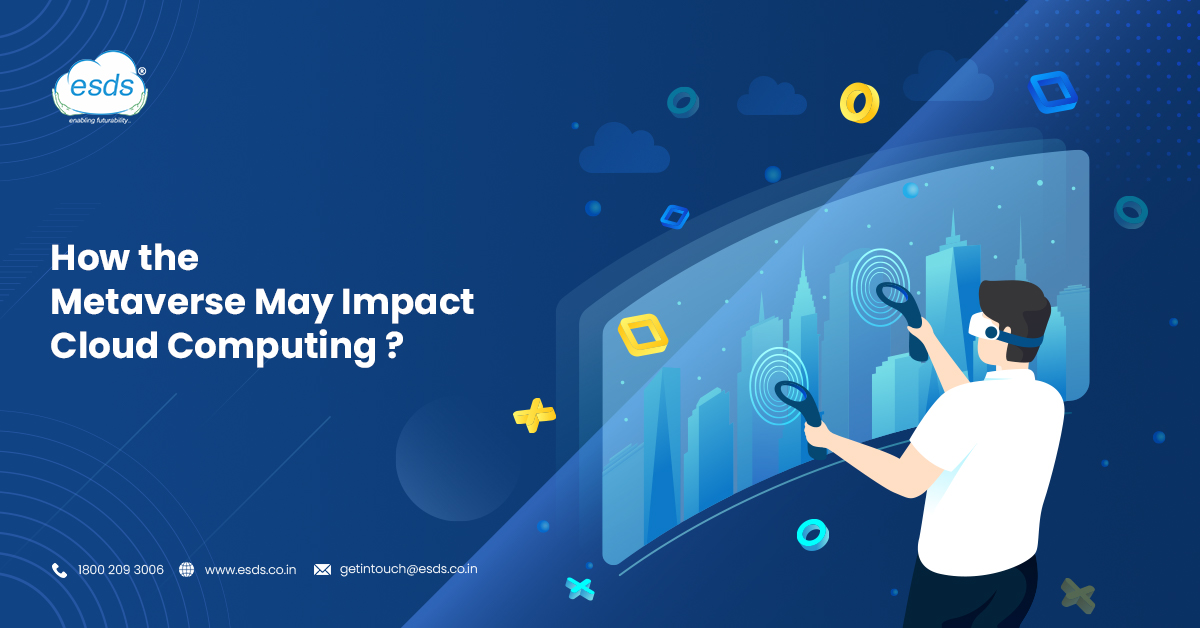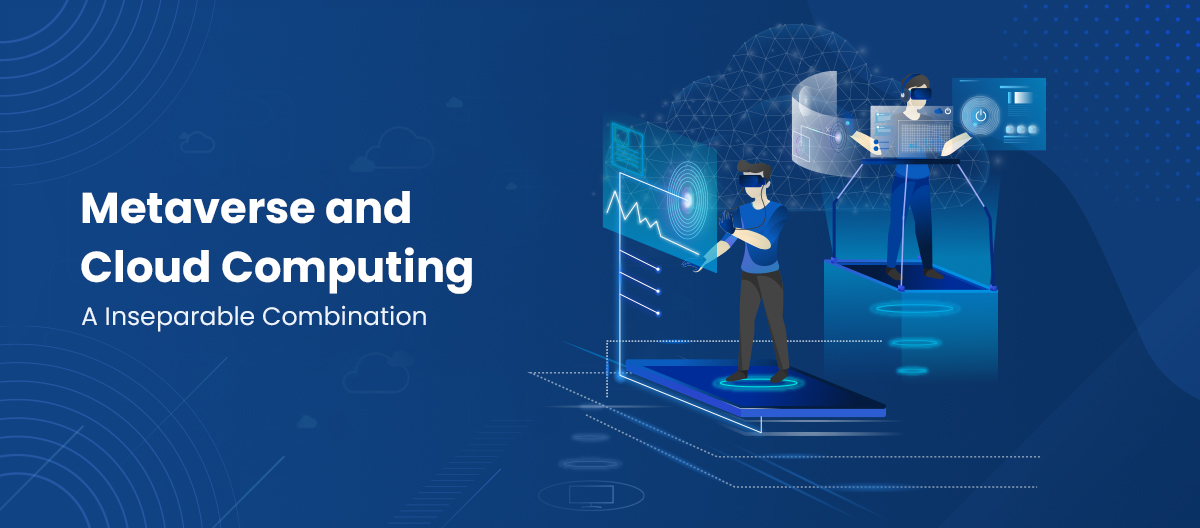How the Metaverse May Impact Cloud Computing?
While some of us are still processing the concept that we will spend more time in a 3D version of the internet, corporations are already scrambling to define the area, carve out their niche, and even own virtual real estate.

According to Gartner, the Metaverse is among the top five emerging trends and technologies of 2022. Furthermore, the worldwide AR, VR, and MR industry is expected to reach $300 billion by 2024. (Stat source: influencermarketinghub)
According to the statistic mentioned above, digital technology would go to the next stage of development—the Metaverse. However, many firms still have questions: What implications would Metaverse have on cloud computing? How can we mold change in our favor and stay ahead of it?
Starting with the literal meaning of the word Metaverse, we’ll further discuss what impact Metaverse can have on Cloud Computing.
What Is the Metaverse?
The term “Metaverse” refers to a “world beyond the universe.”
The Metaverse is a combination of the prefix “meta” (meaning beyond) and the word “universe.”
Hence, “Metaverse” means “world beyond the universe.”
A Metaverse is an imaginary world that has no physical existence.
The Metaverse is a synthesis of the physical and virtual worlds. Consequently, individuals from all over the globe may come together to have real-time experiences and interactions through virtual and augmented realities, as well as the peripherals that enable people to connect to them, such as virtual headsets, augmented reality applications, wearables, and so on.
Metaverse and Cloud Computing
The Metaverse and Cloud Computing are Inseparable

The Metaverse is still a somewhat hazy idea in its early phases of development. Nevertheless, although the fundamental concept of the Metaverse is not clearly expressed, we can make an educated guess about how its advent could change our lives. .
But, even before the buzz around the Metaverse, there was a lot of talk about cloud computing, the on-demand availability and delivery of hosted services through the internet, notably cloud storage. Many have predicted that it will be the future of IT enterprises.
The Metaverse creation makes it more critical with an extra layer of complexity but does not lose its value. Both can and will most likely coexist in the future.
Need for Purpose-built Cloud for the Metaverse
Some of the income generated by the Metaverse may not come from the large generic public cloud providers.
Instead, we may witness the emergence of cloud solutions that specialize in metaverse hosting. This is especially relevant considering that the infrastructure required to support metaverse environments may necessitate specialized technology, like GPUs, which are presently not a primary emphasis of large public cloud providers.
Big cloud service providers supply certain GPU-enabled VM instances but do not specialize in that market, leaving a niche for cloud providers like ESDS to fill in the gap.
Given the data and processing necessary to run virtual reality, the Metaverse will be a windfall for cloud computing. As more performance and details are required, remote cloud-based computers will become the only cost-effective solution.
The Possibility of Metaverse-as-a-Service

Suppose public clouds invest in Metaverse hosting. In that case, they will provide managed services that equate to Metaverse-as-a-service — fully hosted and managed services that allow clients to construct their unique Metaverse environments without effort.
Cloud providers may create these Metaverse services from scratch, as ESDS did with its Cloud Orchestration, IT Monitoring, and DCIM, a 3-in-one service, eNlight 360°. Alternatively, businesses may use Metaverse systems for automating deployment, scaling, and management of containerized applications.
Not Just Cloud, but “Hybrid Cloud”
A significant difficulty that may arise as the Metaverse grows is ensuring that the bandwidth constraints or Internet connectivity outages do not harm users’ ability to utilize it freely.
The Metaverse poses the risk of outages, which can be highly disruptive, especially when swimming in an uncertain sea.
Another issue to consider is the protection of personal data in the Metaverse. While it is unclear how regulators would define or interpret personal information in this context, there is every reason to expect it to require the same level of security as personal information in a traditional cloud-computing environment.
Both of these difficulties, the requirement for improved performance and robust data security, are expected to drive demand for Hybrid Cloud architectures to host Metaverse environments. A hybrid cloud can improve speed and availability by bringing hosting resources closer to end users. It can also increase data security by keeping data on private servers rather than exposing it to the public cloud.
Hybrid cloud environments will likely host some Metaverse entities.
The Metaverse Relies Heavily on Cloud Computing
Meta augments its existing local infrastructure with the solid infrastructure and complete functions of cloud technology and will use more cloud technology processing, storage, database, and security services to increase privacy, security, reliability, and scalability.
In Conclusion

Public cloud providers are investigating how hosting the Metaverse will convert into the introduction of Metaverse-as-a-service, allowing users to install personalized settings.
It is believed that cloud providers will build Metaverse services from the ground up. Alternatively, businesses might base MaaS products on Open Source meta-universe platforms like Vircadia.
- Decoding Generative AI: A Comprehensive Guide to Gartner’s Impact Radar - January 2, 2024
- 5 Best Practices for Cloud Security in 2024 - December 29, 2023
- 10 Best Machine Learning Ops Strategies for Cloud Environments in 2024 - December 29, 2023
